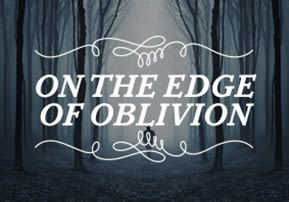
Bo: On the Edge of Oblivion
Hashem created the world with a perfect balance between good and evil to ensure the free choice of each individual; so, why did He strip Pharaoh of his free choice?

“…for I have hardened his heart….” (Exodus 10:1).
Hashem created the world with a perfect balance between good and evil to ensure the absolute free choice of each individual. That way, explains the Ramchal in the beginning of The Way of God, a context of reward and punishment makes sense. Why? If a person is coerced to do good deeds, he doesn’t deserve a reward. On the other hand, if he is forced to transgress, he doesn’t deserve to be punished. Reward and punishment therefore require a climate of free choice.
Why, therefore, does Hashem “harden” Pharaoh’s heart and strip him of his free choice? Is that fair?
Rebbe Shimon ben Lakish says that the evil don’t repent even when they’re about to be thrown into purgatory.[1] This describes Pharaoh exactly: having proven his evil nature time and time again, Pharaoh repeatedly cast away golden opportunities to make amends for his wicked ways. His intransigence was destroying Egypt. He had no intention of repenting to Hashem, Whom he refused to  recognize.
recognize.
We ask ourselves a nagging question: the wicked person, like a punch-drunk boxer in the ring, is taking progressively stronger blows, one after the other. Why doesn’t he give in? Why doesn’t he submit to Hashem and repent already? The only explanation is that his arrogance robs him of any semblance of rational thinking and considerations. Standing on the edge of oblivion and looking at the mile-deep abyss and even smelling the smoke of the fires of Gehennom, he continues to revolt against Hashem. So now, after six plagues when he potentially would give in, Hashem hardens his heart. Why? “…so that I can put these miraculous phenomena of Mine in his midst.”[2] Pharaoh, in his own free will, has repeatedly chosen to be the agent of evil. As such, Hashem now hardens his heart; now that Pharaoh has forfeited the his privilege of repenting, Hashem will use him as a means whereby the Divine Name is sanctified around the world.
We can now understand what our sages teach that Hashem takes a person on a path that the person himself chooses. He who strives to be righteous will benefit from limitless Divine assistance in doing so. On the other hand, he who repeatedly chooses to trample the laws of Torah will find himself walking into all types of additional spiritual minefields. Both doors are wide open.
According to Jewish Law, three consecutive acts, known as a chazaka, constitute an established pattern. For example, one who commits is called an “offender,” having offended the laws of Torah; but, if he commits a crime three times, he is “awarded” the title of “criminal”. Pharaoh was a proven criminal twice over; by Hashem hardening his heart, Hashem is merely “allowing” Pharaoh to continue in the way of his original choice.
In truth, the gates of teshuva are always open, but the more a person revolts against Hashem, the less he will benefit from Divine assistance when the time comes that he’s boiling in the broth of his own bad behavior. We should therefore take a hard look at Pharaoh, for the wise learn from the fool’s folly.











Tell us what you think!
Thank you for your comment!
It will be published after approval by the Editor.